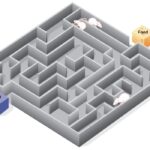Transitioning from Notion to Obsidian for language learning can significantly streamline your study process. Many language learners start organizing their resources, vocabulary, and practice routines within Notion’s flexible environment. However, Obsidian, with its robust plugin ecosystem, offers a compelling alternative, especially when aiming for interconnected knowledge and efficient study methods. This exploration delves into how you can effectively “cover” all aspects of language learning by migrating and enhancing your Notion-based system within Obsidian.
Obsidian’s plugin for Spaced Repetition provides a powerful tool for vocabulary acquisition, mirroring and potentially surpassing flashcard systems built in Notion. While Notion might require manual setup of spaced repetition principles, Obsidian’s plugin automates this process, optimizing review schedules for better retention. For users familiar with Anki, several Obsidian flashcard plugins also offer integrations, creating a bridge between these popular learning tools. This allows for a smooth transition and potentially combines the strengths of both Obsidian’s note-taking environment and Anki’s sophisticated spaced repetition algorithm.
Maintaining a consistent writing practice, like “Daily Entries” in your target language, is crucial for language development. Similar to setting up a daily writing log in Notion, Obsidian allows for a dedicated “Daily Entries” folder. The advantage here lies in Obsidian’s plugin ecosystem; integrating dictionary and translation tools directly into the sidebar enhances your writing flow. Instead of switching between applications, plugins provide instant definitions and translations as you write, promoting a more immersive and efficient writing practice in your target language. This seamless integration contributes significantly to vocabulary expansion and grammatical accuracy during your daily language journaling.
Organizing vocabulary effectively is paramount for language learning. While Notion-like tables, achievable through plugins like Notion-Like Tables in Obsidian, offer a familiar tabular view for vocabulary lists, Obsidian truly shines when leveraging its note-linking capabilities. Consider creating individual notes for each vocabulary word, enriched with metadata, example sentences, and contextual information. Plugins like Dataview, Make.md, or DB Folder then transform this collection of notes into dynamic, queryable vocabulary databases. Make.md, in particular, stands out for its user-friendly interface and powerful organization features, offering a superior alternative to basic Notion tables for in-depth vocabulary management and review.
By leveraging Obsidian’s plugin ecosystem, language learners can effectively recreate and enhance systems initially conceived in Notion. The transition to Obsidian not only “covers” the functionalities of a Notion-based language learning setup but also unlocks new possibilities for interconnected knowledge, efficient study workflows, and deeper language engagement.
